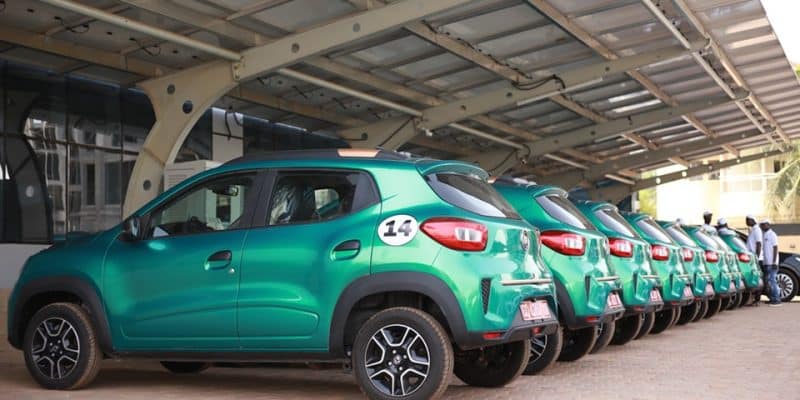In Mali, the industrial conglomerate Ibi Group has just launched a new subsidiary specialising in urban transport. With a fleet of solar-powered taxis and private cars, "Angata" is becoming one of the pioneers of the electric vehicle market in this West African country.
The Malian conglomerate Ibi Group, internationally renowned for its services in aviation, renewable energies and irrigation systems, is continuing to diversify its activities. Just a few days ago, it launched an urban transport business, Angata. The name, which means “Let’s go” in Bambara, will take the people of Bamako down the road to decarbonisation.
The start-up specialises in the sale of fully electric vehicles powered by solar panels. These include personal cars and taxis with a range of up to 300 km. Until the Ibi Group subsidiary has its own manufacturing plant for electric vehicles, its fleet, intended for a mixed clientele (executives and lorry drivers), will be imported from other countries.
“When you use an internal combustion vehicle (running on diesel), each kilometre costs 100 CFA francs (€0.15) for small vehicles and 200 CFA francs (€0.30) for large ones. With the electric vehicles we offer, each kilowatt covers 12 km. That’s less than 15 CFA francs (less than 2 euro cents) per km. That’s a revolution! At least 60% of vehicles on the road in China are electric. The developed countries (in Europe, editor’s note) have also decided that by 2035, there will be no more internal combustion vehicles”, explains Ibrahima Diawara.
Read also-
It is quite possible to implement this vision of the CEO of IBI Group in a country like Mali, which could make use of its 4,200 hours of sunshine a year instead of fossil fuels (petrol and diesel), which are considered expensive and polluting. And the transitional government is ready to support the private sector in developing e-mobility,” said Moussa Alassane Diallo, Mali’s Minister of Industry and Trade, at the Angata launch ceremony.
Benoit-Ivan Wansi







